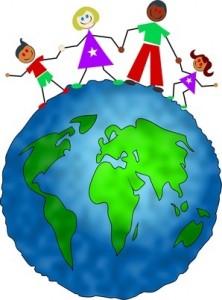The First-Ever World Happiness Report Findings

On April 2, 2012, happiness had a leading role on the world stage: the United Nations held its Conference on Happiness at its headquarters in New York, and the first-ever World Happiness Report (commissioned by the UN) was published by Columbia University’s Earth Institute. The 158-page report aimed to review the state of happiness in today’s world. Here’s a succinct version of the lengthy findings:
- Denmark claimed the top spot for the happiest country, followed by Finland, Norway, and the Netherlands. The countries averaged a 7.6 on a 10-point “life evaluation” scale, a measurement that takes into account factors such as people’s health, family, and job security, as well as political freedom and government corruption
- Conversely, the unhappiest countries, Benin, Central African Republic, Togo and the Sierra Leone, had an average life evaluation score of 3.4.
- Unemployment leads to unhappiness but for reasons other than financial ones: loss of self-esteem and workplace social life that come with losing a job decrease happiness.
- Having a job doesn’t safeguard people against unhappiness: high unemployment rates can trigger unhappiness even in the employed, as people develop a sudden fear of losing their jobs.
- Higher living standards correlate with increased happiness in some countries, but not all. Take, for example, the U.S.: over the past 50 years, standards of living have increased, but happiness levels remain stagnant.
- Levels of trust have drastically dropped in countries like the U.S. and the U.K. (where overall life satisfaction has fallen) but risen in countries like Denmark and Italy (where life satisfaction has increased).
- Married people in countries across the globe report greater happiness than single counterparts, and a stable family life also plays a role in happiness.
- Mental health is the biggest contributing factor in all countries; however, only about 25% of people with a mental illness get sufficient treatment in the most developed countries
The UN Conference on Happiness concluded that gross national product (GNP) cannot be considered the ultimate determinant of happiness. The report reveals that “except in the very poorest countries happiness varies more with the quality of human relationships than with income.” In other words, once basic living standards are met, levels of happiness depend more on relationships than on money; after meeting the baseline, more income will make you only so much happier.
The report can offer information to governments and policy makers on effective ways to increase the happiness of individual citizens and nations as a collective. According to the UN, “incremental gains in income in a rich country may be much less beneficial to the population than steps to ensure the vibrancy of local communities or better mental health.” Jeffrey Sachs, one of the co-editors of the report, commented, “”Policy goals should include high employment and high-quality work; a strong community with high levels of trust and respect, which government can influence through inclusive participatory policies; improved physical and mental health; support of family life; and a decent education for all.”
Robert Kennedy spoke out on the limitations of the GNP in 1968, and the Kingdom of Bhutan (a tiny country in the Eastern Himalayas) uses the Gross National Happiness, a measure that uses metrics such as divorce rates, level of crime, infant mortality rate, and equality, to measure the happiness of its people.
The GNP isn’t going anywhere soon, but according to the new happiness report, it’s not all-inclusive.
Olivia Roat is a reporter for GoStrengths!, a site dedicated to teaching parents and kids resilience skills.